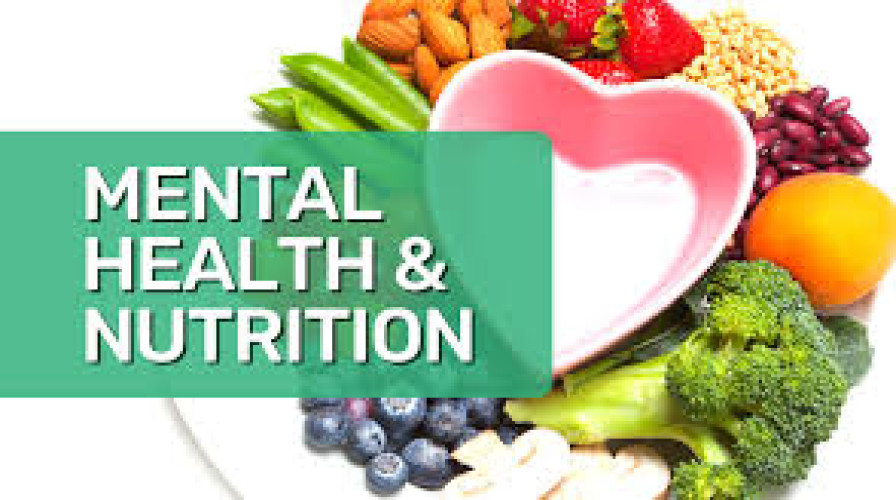What foods and drinks can affect my mental health?
The foods you eat and what you drink affect all aspects of your health — including your mental health. It is important for everyone to eat a balanced diet, drink plenty of water and keep an eye on their intake of alcohol and caffeine
eating and drinking healthily may improve your mental health.
unhealthy eating and drinking habits can make symptoms worse.
some foods, caffeine and alcohol can affect medicines used to treat mental health disorders
Food
There is some evidence that:
A healthy diet is linked to a reduced risk of depression.
Diets high in refined carbohydrates (such as snack foods) can increase the risk of symptoms of depression.
Some other foods that have positive affect on your mental health are:
- Eggs for brain function, development, memory and learning.
- Avocados for brain health and healthy blood flow.
- Blueberries to prevent age-related memory loss, improve movement and thinking.
- Try not to eat or drink refined carbohydrates such as biscuits, chips, white bread and soft drink or juice because they can raise your blood sugar levels too quickly.
Some foods affect medicines used to treat mental health disorders. These include:
- Foods that have high levels of tyramine should not be eaten if you take a type of antidepressant called a monoamine oxidase inhibitor (MAOI).
- Grapefruit and grapefruit juice can affect some medicines that are taken for mental health disorders.
- You should limit your salt intake if you take a medicine called lithium — salt can significantly change the level of lithium in your blood, and place you at risk of overdose.
Foods That Boost Mental Health
While many of those vitamins can be supplemented, you may prefer to consume them more naturally. Along with therapy sessions, you can improve your mental health with these nutrient- and vitamin-rich foods.
1. Salmon

Fish is generally a healthy choice for dieting — especially salmon. Salmon contains high levels of omega-3 fatty acids. Omega-3s are linked to reducing depression symptoms and other mental disorders and can boost memory and learning in the brain. Salmon also provides natural vitamin D, which is linked to lower depression rates. Mackerel, tuna and herring are also great fatty fish to include in a diet.
2. Chicken

Chicken contains tryptophan, the same amino acid in turkey often associated with the sleepy feeling after Thanksgiving dinner. While tryptophan doesn't actually make you tired, it does assist in serotonin production. The brain uses serotonin to help manage mood, maintain memory and fight mental disorders like depression. Chicken also contains other valuable nutrients for the brain, like vitamin B and magnesium.
3. Whole Grains

Whole grains are a broad category, including foods like oats, beans, wild rice and soy. The brain and body need complex carbohydrates like these to encourage slow glucose production and provide consistent energy. More often, however, many people consume simple carbs and experience spiked blood pressure, which is associated with several mental health disorders.
4. Avocados

Avocados are an extremely brain-healthy food. Avocados contain high amounts of healthy fats that aid in brain function. They also contain high amounts of lutein, which has been linked to having positive brain impacts. Avocados also pack lots of folate and vitamin K, helping to improve mood, memory and concentration. These foods are also rich in other nutrients like vitamin Bs, magnesium, vitamin C and more, all of which contribute to brain health.
5. Leafy Greens

Leafy greens like spinach and kale supply lots of folate to help the brain deter depression, reduce the risk of dementia and fight off insomnia, which is often associated with other mental disorders. Dark leafy greens are also high in omega-3s, magnesium and other nutrients, making them a well-rounded brain food.
There are many ways to include leafy greens in a diet, from salads to green smoothies, so find a way to incorporate leafy greens that works for you.
6. Yogurt

Products containing active cultures, like yogurt, are among the best probiotic sources. Probiotics break down food, allowing the body and brain to access and use the nutrients consumed. Research shows a healthy gut is strongly associated with mental well-being, making yogurt and other fermented foods a good addition to your mental health meal plan to help you to reduce anxiety and stress.
7. Nuts

Various types of nuts are great sources of omega-3 fatty acids. To name a few, cashews, walnuts and chia seeds have high concentrations of omega-3s. These nutrients are known for helping ease depression symptoms and supporting brain function. Many nuts also contain high doses of magnesium, which helps get oxygen to the brain.
Other nuts, like almonds, contain phenylalanine, which helps the brain produce neurotransmitters like norepinephrine that can improve mood. Phenylalanine is also believed to help reduce Parkinson's Disease symptoms.
8. Berries

Mixed berries like strawberries, blueberries, raspberries and blackberries contain valuable antioxidants that are vital for mental health. Studies have shown that antioxidants from foods like berries can help prevent and reduce depression symptoms. Antioxidants have also been associated with helping anxiety and other mental health issues. Since berries are high in antioxidants, they're must-have foods in a mental health diet.
9. Dark Chocolate

Did you know opting for dark chocolate instead of milk chocolate can benefit your health? This is due to the higher cocoa content in dark chocolate, which contains high levels of an antioxidant called flavonoids. Dark chocolate and flavonoids can positively affect mood, memory, attention and the ability to fight cognitive decline as your patients age.
The darker the chocolate, the more cocoa, which means more antioxidants. To be most beneficial, dark chocolate should contain 85% cocoa or more. Despite being healthier than milk chocolate, dark chocolate should still be consumed in moderation.








